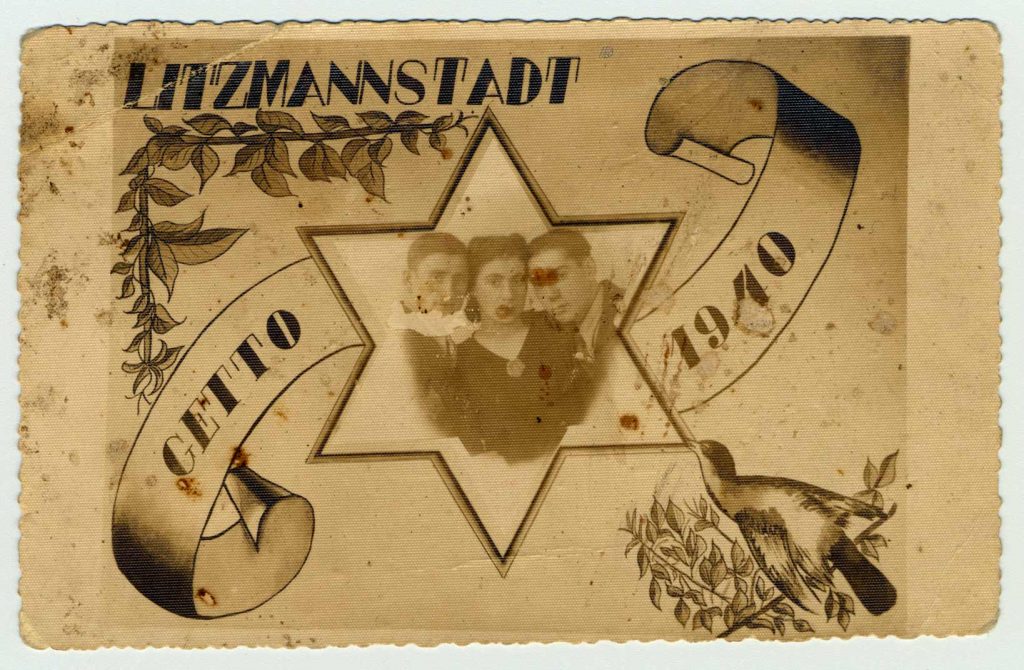Module 5: Memory and the Holocaust

Hernan Tesler-Mabé
Dr Tesler-Mabé is the Coordinator of the Vered Jewish Canadian Studies Program at the University of Ottawa and teaches in the departments of History, Modern Languages and Literature, and Classics and Religious Studies. His research centers on modern Jewish culture across the Diaspora, with a focus on the intersection of art, culture, and identity. Dr. Tesler-Mabé is also the President of the Association for Canadian Jewish Studies and a founding member of the University of Ottawa Holocaust Research group. His first monograph—Mahler’s Forgotten Conductor: Heinz Unger and his Search for Jewish Meaning, 1895-1965—was an exploration of a musician’s negotiation of his German Jewish identity and was awarded the 2020 Canadian Jewish Literary Award for Best Biography.
Marie-Catherine Allard
Marie-Catherine Allard is the project coordinator of the Hear Our Voices Project. She is also a PhD candidate in Cultural Mediations at Carleton University. Her dissertation, which is entitled “Reshaping Memory: Narrating the Kindertransport in Literature and Popular Culture,” focuses on the narratives of Karen Gershon, Ruth Barnett, and Josef Eisinger. In her work, she explores the ways in which the Kinders’ numerous retellings of their evacuation from one medium or literary genre to another foster the reconfiguration of their Kindertransport experience. Marie-Catherine has been awarded the Andras Memorial Award to support her research on the artistic representation of the Kindertransport, the rescue operation which allowed, before the outbreak of World War II, for the relocation of ten thousand children at risk of deportation from Austria, Germany, Czechoslovakia, and Danzig mainly to Great Britain.

“The challenge of imagining the Holocaust—not the anti-Semitic tactics which led up to it, but its apocalyptic end in the gas chambers and crematoria of the death camps—is a permanent one, and will indeed grow more difficult for future generations who will lack the advantage of hearing living voices confirm the details of the ordeal they survived. The only evidence we will have available then is the kind we depend on increasingly today: verbal and visual accounts which inspire the imagination to conjure up an unimaginable world.”
Langer, Lawrence L. “The Writer and the Holocaust Experience.” In The Holocaust: Ideology, Bureaucracy, and Genocide, edited by Henry Friedlander and Sybil Milton, 309-322 (Millwood, NY: Kraus International Publications, 1980), 312-313.
Introduction
Part One: Canada and the Holocaust
This module explores the topic of Memory and the Holocaust through a Canadian lens by using oral histories and archival materials. The first section focuses on Canada and the Holocaust in terms of Canadian involvement in World War II. What did joining the war mean to Canadians and how did the war relate to the Holocaust? What were the attitudes towards Jews at this time? This section also provides an introduction to the role of Jewish Canadians in the Canadian war effort. We then examine the story of the MS St. Louis as a case study to illustrate Canada’s response to the Jewish refugees fleeing Europe, as well as the experience of Jewish survivors who were turned away.
Part Two: Remembering and Commemorating the Holocaust
The second section focuses on the question of memory and commemoration. How did Canadians collectively commemorate the Holocaust? How did survivors remember the Holocaust and how was their sharing those memories an act of commemoration? While you engage with this material, consider the significance of the relationship between memory and culture.
Glossary

